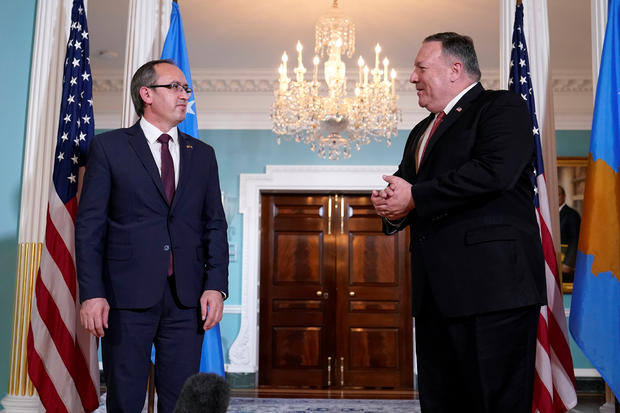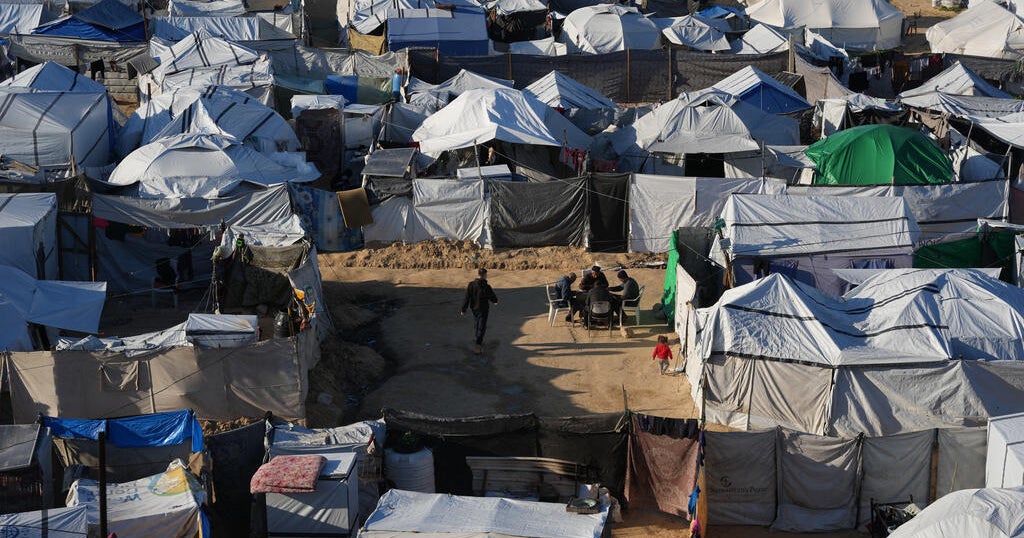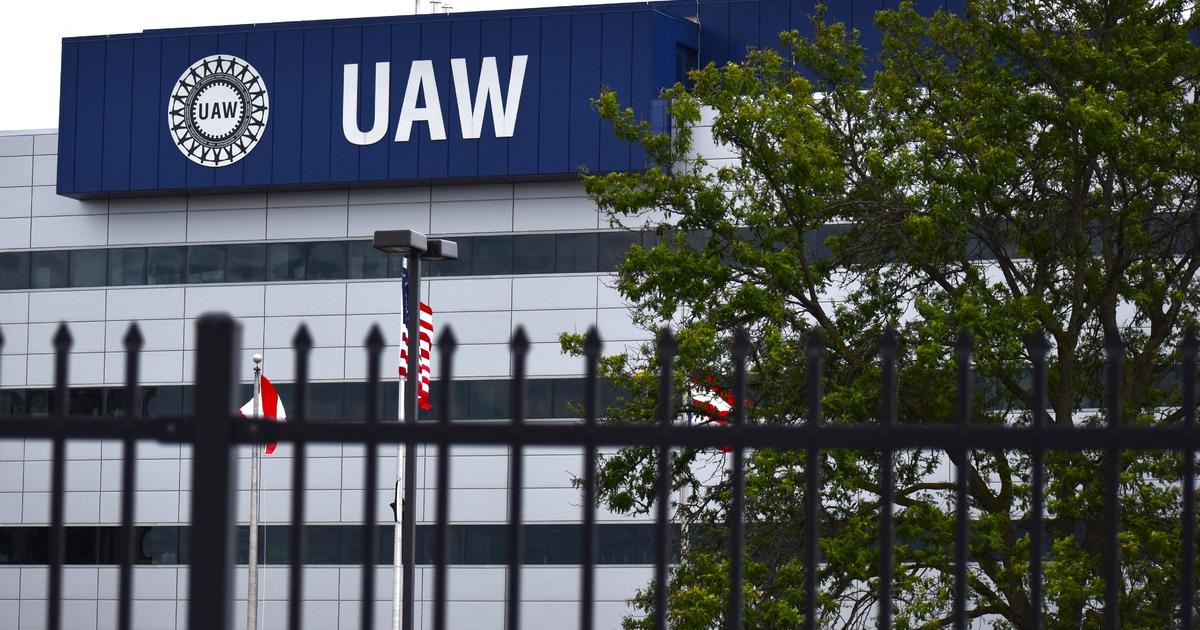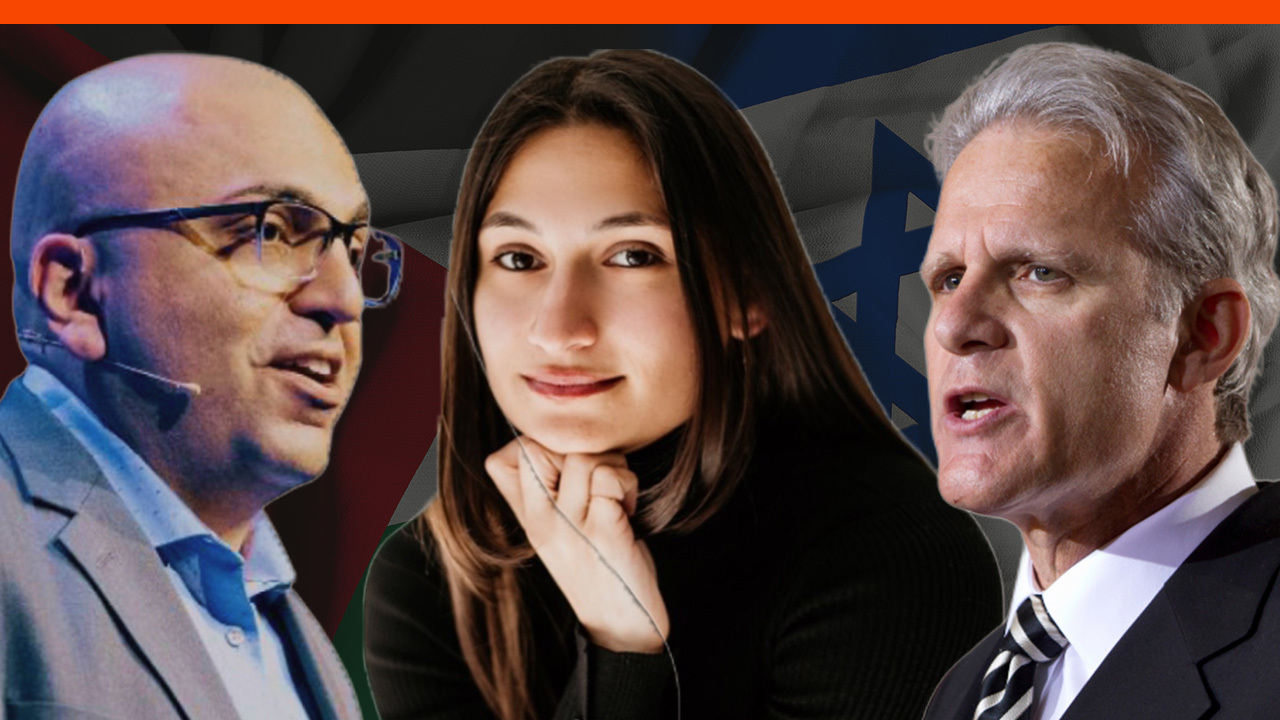Serbia and Kosovo normalize economic relations in U.S.-brokered deal
President Trump announced Friday that Serbia and Kosovo have normalized economic ties as part of U.S.-brokered talks that include Belgrade moving its Israeli embassy to Jerusalem, and Israel and Kosovo agreeing to mutual recognition.
After two days of meetings with Trump administration officials, Serbian President Aleksandar Vucic and Kosovo's Prime Minister Avdullah Hoti agreed to cooperate on a range of economic fronts to attract investment and create jobs. The announcement provided Mr. Trump with a diplomatic win ahead of the November presidential election and furthers his administration's push to improve Israel's international standing.
"I'm pleased to announce a truly historic commitment," Mr. Trump said in the Oval Office, standing alongside the two leaders, who signed an economic cooperation agreement. "Serbia and Kosovo have each committed to economic normalization."
"After a violent and tragic history and years of failed negotiations, my administration proposed a new way of bridging the divide. By focusing on job creation and economic growth, the two countries were able to reach a major breakthrough," the president said.
Mr. Trump said Serbia has committed to open a commercial office in Jerusalem this month and move its embassy there in July.
Serbia's decision to move its embassy from Tel Aviv to Jerusalem is a nod to both Israel and the United States. The Trump administration recognized Jerusalem as Israel's capital in late 2017 and moved the U.S. embassy there in May 2018.
The administration has encouraged other countries to do the same but has been widely criticized by the Palestinians and many in Europe because the Israeli-Palestinian conflict remains unresolved. Kosovo, a predominantly Muslim country, has never before recognized Israel nor has Israel recognized Kosovo.
In a rare statement issued after the start of the Jewish sabbath, Israel Prime Minister Benjamin Netanyahu thanked the president of Serbia for moving the embassy to Jerusalem. He confirmed that Israel and Kosovo will establish diplomatic relations and said Kosovo also will open its embassy in Jerusalem.
"Kosovo will be the first majority-Muslim country to open an embassy in Jerusalem," Netanyahu said. "As I've said in recent days, the circle of peace and recognition of Israeli is widening and is expected to add additional countries."
In all, a total of four countries now recognize contested Jerusalem as Israel's capital, including the U.S. and Guatemala. The Palestinians claim east Jerusalem, occupied by Israel in the 1967 Mideast war, as their would-be capital.
The gestures to Israel are part of the Trump administration's push to support the Jewish state, which has included forceful denunciations of criticism of Israel at the United Nations and in other international venues. Most recently, the administration brokered a deal for Israel and the United Arab Emirates to normalize relations. That was followed by the first commercial flight between Israel and the UAE, with neighboring Saudi Arabia and Bahrain to allow such flights to pass through their airspace. Additional Arab states, including Sudan, Bahrain and Oman, have been identified as countries that may soon also normalize relations with Israel.
Kosovo's Parliament declared independence from Serbia in 2008, nine years after NATO conducted a 78-day airstrike campaign against Serbia to stop a bloody crackdown against ethnic Albanians in Kosovo.
Most Western nations have recognized Kosovo's independence, but Serbia and its allies Russia and China have not. The ongoing deadlock and Serbia's unwillingness to recognize Kosovo have kept tensions simmering and prevented full stabilization of the Balkan region after the bloody wars in the 1990s.
"These were difficult talks for us, but I'm truly satisfied," Vucic told Serbian reporters in Washington.
He stressed that the economic agreement does not include "mutual recognition" between Serbia and Kosovo. But he hailed the talks as a big victory for Serbia and a step toward closer ties with the U.S. Despite officially seeking membership in the European Union, Serbia has been forging close political, economic and military ties with Russia and China.
Hoti described the economic cooperation as a "huge step forward" in the relationship and said the two leaders were committed to working together.
Serbia and Kosovo have already OK'd air, rail and transit agreements, including one that would clear the way for the first flight between Pristina and Belgrade in 21 years. The new agreement comprises many more areas of economic cooperation. Business leaders in both nations have been frustrated and have been talking among themselves about ways to foster investment outside of the ongoing political talks brokered by the EU.
On Monday, Vucic and Hoti are scheduled to go to Brussels to hold talks under the auspices of the EU's foreign policy chief Josep Borrell and special envoy for the Belgrade-Pristina dialogue Miroslav Lajcak.
The EU has mediated the talks between the two former wartime foes for more than a decade, and the parallel U.S. effort, although focused on economic development, has not been fully embraced by some EU officials.
The White House summit was originally scheduled for June, but it was canceled after Kosovo President Hashim Thaci, who was to lead the Kosovo delegation, was indicted for war crimes by an international court.
In Kosovo, Thaci hailed the deal and thanked Trump. In a statement posted on social media, he said Kosovo now should continue to seek membership in international organizations so it has improved status in the domestic and international arenas.






